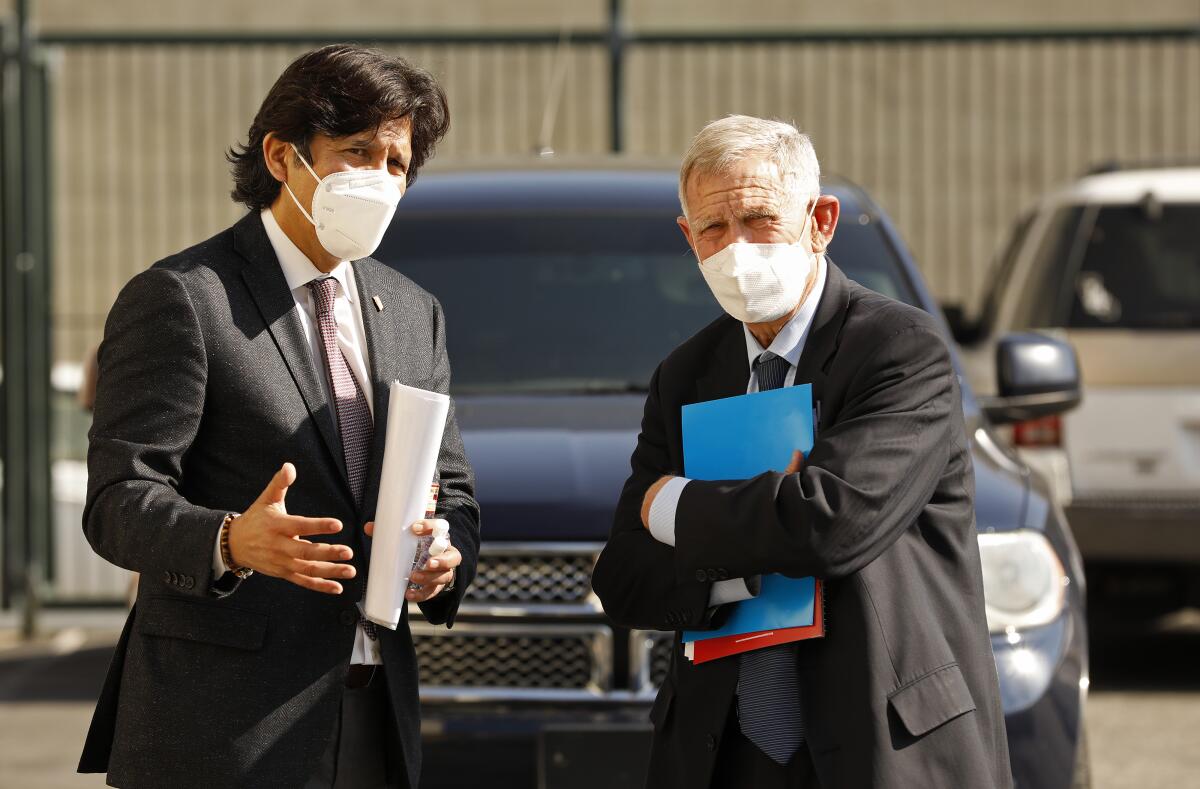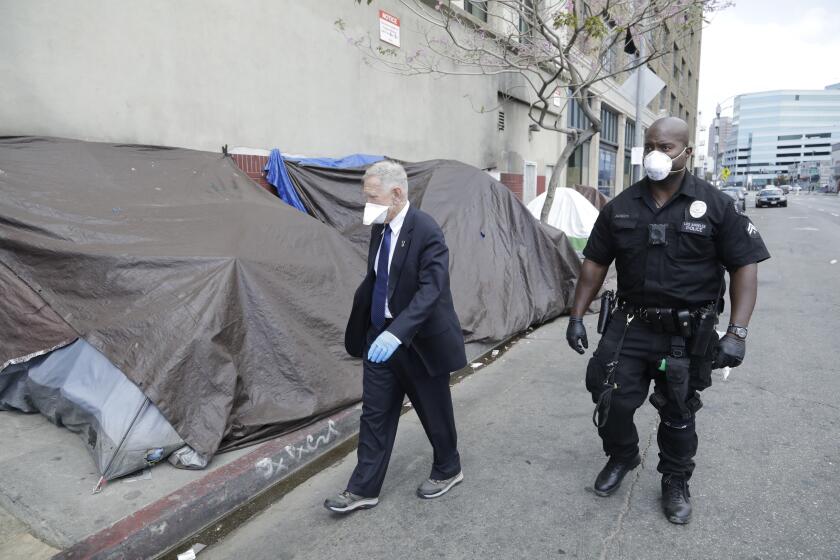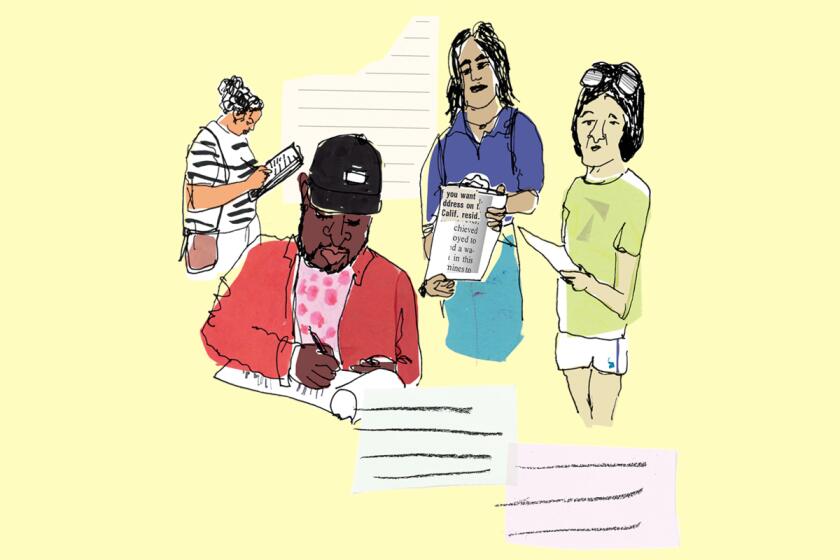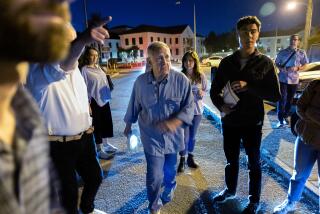L.A. County asks appeals court to dismiss long-running homelessness lawsuit

Los Angeles County has asked a federal appeals court to put an end to a years-long lawsuit over the government response to the homelessness crisis, arguing that the judge overseeing the case abused his power and overstepped his authority.
The petition, filed Thursday night with the U.S. 9th Circuit Court of Appeals, comes after U.S. District Judge David O. Carter twice rejected agreements that would have marked the end of the long-running lawsuit first filed at the start of the pandemic.
The Los Angeles Alliance for Human Rights, a coalition of downtown residents and business groups, sued the city and county in March 2020 for allowing inhumane and unsafe conditions to fester in encampments around Skid Row.
The city settled with the group last April, agreeing to add enough beds over the next five years to shelter more than half of the region’s homeless population. It also agreed to be supervised by the court throughout that time period.
For a second time, a federal judge refuses to sign off on a settlement between L.A. County and a downtown alliance to address the homelessness crisis.
But the county has failed to reach a settlement with the alliance that is palatable to Carter, who has repeatedly told the county it needs to pledge more beds and allow more federal oversight if he’s going to sign off.
In Thursday’s petition, county lawyers argued that Carter has no legal power to spike a settlement both sides have agreed to. They called his decision “unprecedented” and accused him of effectively becoming a third party in the case, acting as a “catalyst for social and political change” rather than a neutral arbiter.
The result, the county claims in the petition, is more time and money spent on litigation rather than addressing a worsening homelessness crisis.
“By refusing to approve dismissal, the district court has left the parties the option of bowing to its pressure tactics or proceeding with litigation — at public taxpayer expense — that has already been fully resolved between them,” wrote attorney Mira Hashmall, partner at the Miller Barondess firm, which was hired by the county to litigate the case.
The county announced its second stab at a settlement in April, praising it as a “historic” agreement that would provide an extra 700 new mental health and substance use disorder beds, bringing the total number of these types of beds to 1,000. In total, the county says it’s committing $850.5 million through the settlement.
Carter shot it down, accusing the county of doing the “bare minimum.”
“You give me absolutely no oversight and you give me no enforcement,” Carter said at the April 20 hearing as he sent attorneys for the county and the Alliance to negotiate for a third time.
You can help someone get on the path to housing — and make your voice heard on issues of housing and homelessness. Learn how with Shape Your L.A.
Matthew Umhofer, an attorney for the L.A. Alliance, called the county’s petition a “Hail Mary.” He said the settlement agreement reached with the county was conditional on the court agreeing to monitor it. And if Carter felt he couldn’t enforce it, he said, there was no deal.
“Supervision is critical because the county has faced zero accountability on the issue of homelessness for decades,” he said. “Given the county’s utter failure on this issue for so long, it’s essential to any deal in this case.”
It’s the second time the county has accused Carter of overstepping in the case.
After an appeal by the city and county, the federal appeals court overturned a ruling by Carter that would have required local governments to offer some form of shelter or housing to the homeless population in Skid Row. The court said the judge had “abused [his] discretion” by relying on evidence that no one had introduced and ordering relief that was “overly broad.”
More to Read
Sign up for Essential California
The most important California stories and recommendations in your inbox every morning.
You may occasionally receive promotional content from the Los Angeles Times.













